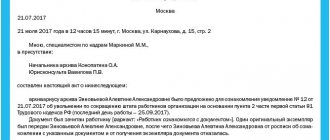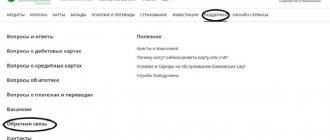Features of the crime
According to labor legislation, in particular articles 101 of the Labor Code of the Russian Federation, all persons in the workplace have obligations in the form of communication within the framework of ethical standards of a corporate, professional, and social nature.
Also, the inadmissibility of insults in the form of humiliation of human dignity, regardless of his nation, faith and other characteristics, is prescribed by the Constitution of the Russian Federation.
Important! Insulting a government official, such as a police officer, is subject to criminal law. In the usual version, the Code of Administrative Offenses is used (Article 5.61).
Any person who is higher or lower in the service hierarchy, as well as an outsider, can offend in the workplace. Identical measures will be applied to everyone in the same cases. The exception is officials, who also have an internal option for disciplinary sanctions, up to and including dismissal.
What is considered harassment in the workplace?
The humiliation of honor and dignity is considered an insult when a person is at work. Such an incident can negatively affect your credibility and career. The humiliation option can be different:
- using obscene language towards another person;
- offensive gestures;
- using the Internet or email to disseminate offensive information.
In the latter case, slander and ordinary humiliation are classified.
In judicial practice there are various proceedings in which the insult is not clear-cut. In such cases, all language norms are analyzed.
Concept and legal characteristics
According to Article 5.61 of the Code of Administrative Offences, humiliation of honor is considered as a whole, that is, there is no focus on the official environment. Each option has certain characteristics of the legal type. List of circumstances that indicate an attempt at humiliation:
- the honor or dignity of an employee is deliberately humiliated;
- actions and words are obscene;
- there is a specific addressee.
In the latter case, it is worth considering that standard abuse, not addressed to a specific person, is not a specified offense, that is, it is impossible to bring such a citizen to justice under Article 5.61.
According to judicial practice, a violation is:
- expression with elements of obscenity or obscene content;
- comparative forms, for example, with an animal or plant;
- cynical or unwanted touching;
- obscene gestures;
- any movement that results in the victim's clothing being torn off or damaged.
The main point is the mandatory compliance with all norms by any persons, including strangers. It is also necessary to take into account that an offense against an employee who has a higher position has the same forms of punishment as humiliation of the dignity of persons who are lower in the service hierarchy.
Read also: Ban of snus in Russia
Article 5.61 of the Administrative Code
Article 5.61 of the Code of Administrative Offenses is a specially created regulatory framework that regulates the liability of offensive actions of any nature. There are three elements of crime:
- in the form of general means the humiliation of one person by another verbally. To prove this, you will need to have a number of evidence or video and audio materials;
- publicity is expressed in public form. A crime can become public if there are two or more people nearby at the time the offense is committed. The same option includes the use of media;
- passive crime is the absence of action or inaction of persons in violation of this nature. An example would be the inaction of a manager when his subordinate or subordinates are humiliated.
Most often, the corpus delicti specified in the normative act requires the presence of an evidence base. It turns out that if there is no evidence, then it is impossible to attract a person who violates the rights of another person, since the fact of violation has not been proven.
Types of insult
According to the legislative framework, crime has two types, general or public. But in relation to work, there are various types of violations that manifest themselves in practice:
- violation by a colleague or colleagues;
- violation by management;
- violation by an outside party, such as a customer or client.
The fact itself may even be neutral, that is, the humiliation of a person will be carried out using literary speech and veiling. But even in this case, the person who violated the rights of another citizen may be held accountable.
Rules on this issue
The regulatory framework, which provides for the inadmissibility of violating the rights of a citizen, which is associated with humiliation of his honor and dignity, is expressed in several rules. They are spelled out in the following acts:
- Constitution of the Russian Federation (21 articles);
- Labor Code of the Russian Federation (indicating the need to form correct relationships using all ethical standards);
- Criminal Code (if the addressee is a representative of the authorities, for example, law enforcement agencies);
- Article 5.61 of the Administrative Code.
Important! When the honor of one or more persons is humiliated, the main legal act is the Code of Administrative Offenses.
Legal regulation of the situation
An insult during the work process can be inflicted on both an individual and a government representative. Various legislative codes deal with the regulation of these conflicts.
Insult to physical faces are a manifestation of interpersonal relationships, therefore the measures of influence are indicated in the Code of Administrative Offenses (CAO) of the Russian Federation, in Article 5.61. The Constitution guarantees the protection of the honor and dignity of every citizen of the Russian Federation; this is stated in Chapter 21. If the insult is combined with the use of real threats to health or life, then this is classified as a criminal offense and, accordingly, is under the jurisdiction of the Criminal Code. Find out here what the punishment is according to the Criminal Code of the Russian Federation for threats of violence.
Insulting a citizen in public service entails criminal liability. Such conflicts are considered by the Criminal Code (CC) of the Russian Federation. More information about insulting a government official can be found on the pages of our Internet portal - https://lexconsult.online/5855-privlechenie-k-ugolovnoi-otvetstvennosti-za-oskorblenie-predstavitelya-vlasti.
Procedure
If the honor or dignity of the individual is humiliated, the offender can be brought to administrative or criminal liability, as well as receive compensation for moral damage. Procedure:
- collection of evidence that will confirm the fact of insult. Audio or video files and witness statements are used as evidence. If there is information posted on social networks or the Internet, as well as sent by mail, scans of the specified pages will be required. If the violation occurred in a room with a security camera, you can take a video recording. It will be attached to the case file;
- drawing up a complaint or report indicating the date of the incident, as well as all data, including personal information about the offender;
- appealing to the court for compensation for moral damage, to the prosecutor's office for prosecution, or submitting a memo to senior management, if any, or to the trade union.
Important! To contact the trade union or the boss, a memo is sufficient. When applying to the court, a claim form must be completed according to the standard, and when applying to the authorities, it is necessary to fill out the application correctly.
Read also: Law on pharmaceutical activities in 2021
How to file a complaint?
The standard version of the application is used as a complaint. But in addition, you need to specify several mandatory points:
- the time frame of the offense, including the exact time and date. In case of systematic violations, it will also be necessary to indicate all recorded facts;
- details of the offender, that is, the official is indicated, as well as his personal information;
- the fact itself is written down. Fact means full disclosure of actions;
- request for accountability.
When going to court, a standard claim form is used. It is also important to fully evaluate the person's actions and provide specific facts about why their words or actions were offensive.
Where should I submit it?
Most organizations have a number of ethics rules, which allows you to file complaints with senior management when moral harm is caused by other employees, including those higher in position. Another two options are the courts; in particular, a lawsuit is filed if it is necessary to recover damages caused by insult.
According to the Code of Administrative Offenses, it is advisable to immediately make an appeal to the prosecutor's office.
Important! Together with the complaint, a full package of evidence is submitted, which can be expressed in any form. This is necessary for further consideration of the case. Without an evidence base, a citizen may be refused due to the lack of a confirmed fact.
If there is no evidence in the form of audio or video recordings, then it is mandatory to provide written testimony of witnesses, who may later be summoned to court.
Sample
A memorandum and a complaint to the court for consideration of a civil case are standard. The complaint is drawn up according to a special template.
Sample:
Sample report for an employee
Punishment for harassment in the workplace
There are several punishment options.
Disciplinary action is imposed only if the organization has special ethics rules, which all employees must be familiar with. Important! Familiarization takes place against signature. Oral actions have no force.
A disciplinary sanction must be proportionate to the act, that is, it is impossible to fire an employee for an obscene joke, since such dismissal is appealed in accordance with the norms of the Labor Code of the Russian Federation.
Differences in punishment may occur for violators from different categories, for example, such a person may be an outsider, an official, or an organization. In all cases, the size of the punishment and its severity will directly depend on the category of the person and the nature of the violation.
Civil responsibility
Civil liability may arise for statements made without obscene expression or action.
The civil law procedure provides for the following options:
- making a personal or public apology;
- compensation for material and moral damage;
- moral damage cannot exceed 50,000 rubles.
Responsibility comes only after the corresponding decision of the court to which the victim applied.
Administrative responsibility
If there are obscene forms, administrative measures are taken. Punishment options:
- fine from 1000-50000 rubles;
- administrative arrest with a maximum period of 15 days;
- joint use of sanctions.
The latter option is rarely used, that is, only arrest or only a fine is applied as punishment.
Read also: Law on roaming in Russia
Criminal penalty
Criminal punishment is used when there are threats to life and health. Sanctions in this case may be different:
- domestic arrest or detention with a maximum period of one year;
- imprisonment for 3-7 years.
Criminal liability can be expressed in two punishments, but they are imposed only in accordance with the severity of the consequences.
Important! If there is criminal liability, the victim has the right to additionally apply to the court to receive compensation.
Possible consequences for the conflict initiator
An administrative violation entails an administrative penalty for insulting a person – a fine. According to Art. 5.61 of the Administrative Code, the fine is:
- for citizens – up to 3 thousand rubles;
- for officials – up to 30 thousand rubles;
- for legal entities – up to 100 thousand rubles.
You can learn about administrative liability for the instigator of a conflict who insults his colleague by watching the video
In addition, in accordance with the collective labor agreement, other measures of influence may be provided for the violator who committed the insult. This could be a fine, deprivation of a bonus, an entry in the work book, etc.
Want more information? Ask questions in the comments to the article
How can you protect yourself from insults?
The main rule is the absence of retaliatory actions of an illegal nature, that is, you cannot insult in response. All actions and words must be completely neutral and competent. Only in this case can one be held accountable.
The protection against further abuse is a complaint that is filed correctly and has the necessary confirmation. The damage that has been caused is recovered in the standard manner through the courts. Protecting your dignity consists of several actions:
- recording the fact I am in any accessible form;
- notifications to the manager in writing;
- collection of evidence and evidence;
- contacting the required authority.
This is standard procedure, except in cases where management is involved in the incident. In this case, the appeal is made immediately to the labor inspectorate and the prosecutor's office.
In case of incidents in the workplace, an internal inspection is always carried out, which is announced by both management and the labor inspectorate. To prove that you are right, you must have all the evidence on hand, for example, printed screenshots from an Internet resource, certified by a notary.
Does an employer have the right to yell at subordinates?
The transition of companies into private hands leads to changes in corporate ethics and general standards. If previously there were so-called trade union committees, now their number has decreased significantly. This is especially true for companies that are in the hands of individual entrepreneurs or reorganized into LLCs. But this does not mean at all that people working there are obliged to endure tyrant bosses and listen to the humiliation of their dignity.
Before filing a complaint against a manager who yells at subordinates, you should understand the nature of the conflict:
- Practice shows that cases of humiliation at work are purely individual. Bosses tend to yell at individual employees, while other workers do not experience conflicts with the boss. This allows you to analyze the current situation on an individual basis.
- Labor legislation has a relationship with administrative and criminal law. An example is the punishment of management for systematic humiliation of the honor and dignity of a number of subordinates.
- The positive outcome of a complaint against a boss depends on several factors. The offended employee will have to prove that the boss is yelling and humiliating for a reason, but in order to get the employee out of the team or to take revenge on him in a number of domestic disputes.
Measures of influence on the offender
The sanctions vary depending on various factors, such as the position of the offender or the nature of the insult. Full list:
- civil action;
- complaint to regulatory authorities;
- memo to management.
In each specific case, the procedure is standard, that is, you will need to collect a full package of evidence.
Important! When drawing up a complaint or memorandum, it is necessary to make a duplicate. You will also need to fully record all information about the incident.
Enforcement measures can be applied both within the organization itself and with the help of special bodies, for example, the judicial system or the prosecutor's office. If the violation was examined within the organization itself, after which a disciplinary sanction was imposed on the violator, then it is possible to attract him with the help of other authorities as additional measures.






